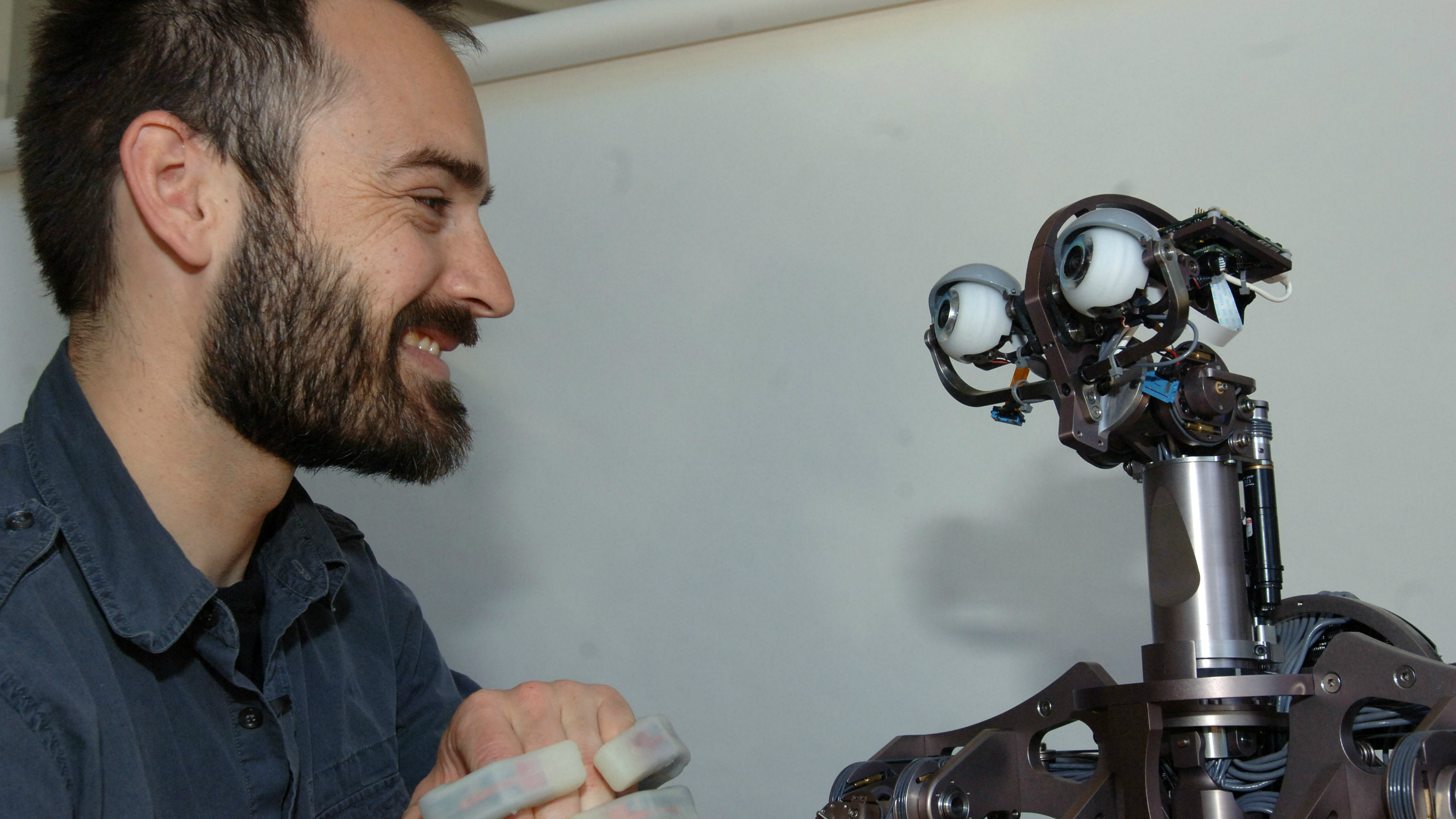AI will likely match human intelligence in the next 30 years, says robot expert
2029 might be a tad ambitious...

Sign up for breaking news, reviews, opinion, top tech deals, and more.
You are now subscribed
Your newsletter sign-up was successful
Will Smith's recurring nightmares about iRobot's Sonny may finally have subsided, but there's a good chance he'll be alive to come face to face with the real thing - according to one expert in the field of AI.
Murray Shanahan, professor of cognitive robots at Imperial College London, is working on deep learning in AI and believes there's a good chance that we'll see AI match human intelligence in the next 30 years.
"I would say the chances of it happening in my lifetime are better than fifty-fifty," he told TechRadar. "So within the next 30 years I would say better than fifty-fity that we'll achieve human-level AI."
But while Siri and Google Now might be getting smarter by the day, Shanahan reckons there's a missing piece to the puzzle that we're yet to stumble upon. Once we've got it, things will develop a lot more quickly.
"The amazing thing about humans, and other animals as well, is that we're so adaptive. So that kind of general intelligence - we're a way off understanding how to achieve that artificial general intelligence, and I don't think anybody really knows what the missing pieces are," he said. "I think there's a trick that nature has discovered, that evolution has discovered, that we're not making the most of yet."
"'More human than human' is our motto"
Shanahan said he's keeping a particularly close eye on what Google's up to, ever since it snapped up British artificial intelligence company DeepMind. And Google's certainly not the only one - companies like Facebook and Yahoo have also been scooping up AI experts.
"In AI there have been these cycles of hype and disappointment, and we're in a big of a hype phase at the moment with all these events such as DeepMind being purchased by Google for 400 million pounds. And a lot of people are working on the same technology that they're working on."
Sign up for breaking news, reviews, opinion, top tech deals, and more.
"Maybe this one will not be followed by disappointment. Maybe there's something in this, especially as we're seeing a lot of major corporations putting serious money into some of this stuff."
One area that Shanahan feels has rapidly picked up recently is speech recognition. "It was really pretty crap for years and years. And then suddenly with statistical machine learning and a lot of cheap computation available, able to process huge amount of data, suddenly that has become very successful."
"I think speech recognition is pretty much there," he added. "But one of the reasons it's got better is because of the use of predictive technology. And that's because of the availability of huge amounts of data that it can learn from, so that's helped. Which is no doubt the way we work as well."

Hugh Langley is the ex-News Editor of TechRadar. He had written for many magazines and websites including Business Insider, The Telegraph, IGN, Gizmodo, Entrepreneur Magazine, WIRED (UK), TrustedReviews, Business Insider Australia, Business Insider India, Business Insider Singapore, Wareable, The Ambient and more.
Hugh is now a correspondent at Business Insider covering Google and Alphabet, and has the unfortunate distinction of accidentally linking the TechRadar homepage to a rival publication.